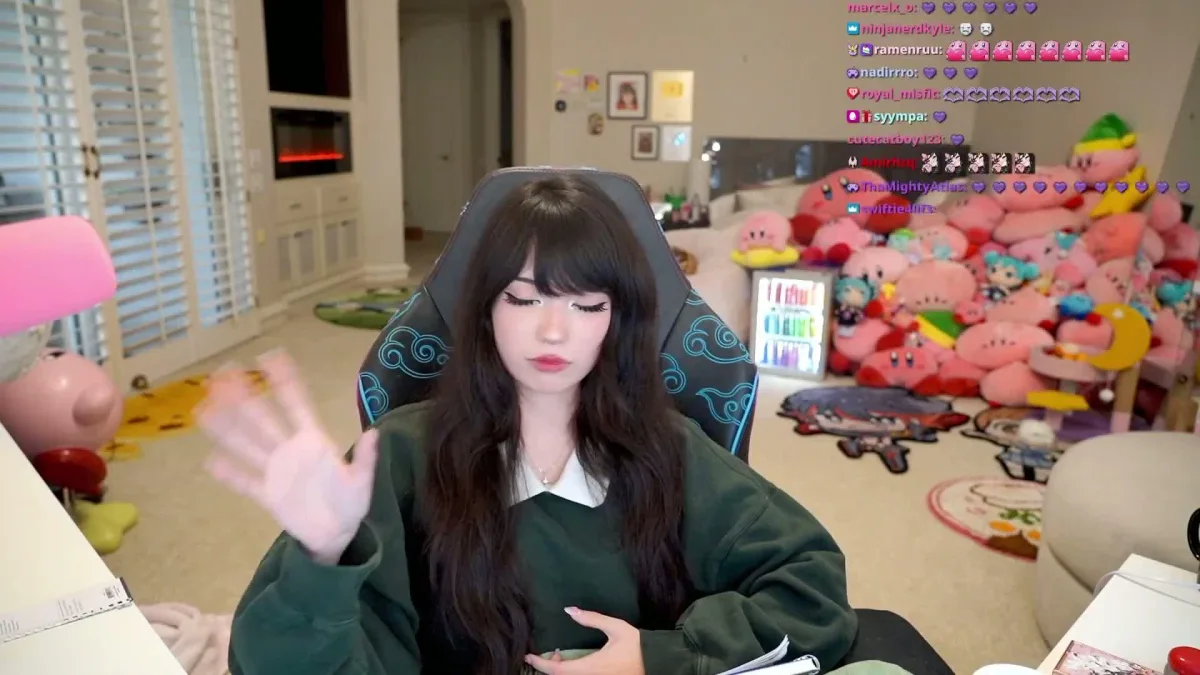Emiru revealed during a recent livestream that she is in the process of filing a restraining order against fellow streamer and OTK co-founder Mizkif. The announcement marks the first time she has publicly confirmed a past romantic relationship with him.
During her recent stream, Emiru displayed screenshots of messages and described what she characterized as ongoing harassment and unwanted contact following their breakup.
The allegations center on a pattern of emotional manipulation. Emiru claimed Mizkif repeatedly referenced self-harm and suicidal ideation in communications with her, which she described as coercive and distressing. She showed select message screenshots on stream, including one where Mizkif allegedly asked if she had any recordings—a question she framed as suspicious.
Emiru made clear she has retained extensive evidence. She directly addressed the possibility of legal action from Mizkif, saying she has intentionally held back certain details from public release but would present them in court if he pursues defamation claims. Her stance suggests confidence that discovery would favor her position.
As of now, no court filing has been publicly confirmed. Emiru stated she is “in the process” of filing the restraining order but did not claim one has been granted. Mizkif has not issued a public statement in response to the allegations.
Both streamers are prominent figures in the Austin streaming scene and share business ties through OTK. Emiru joined the creator organization in 2022 and became a co-owner in 2023. Mizkif co-founded the group and remains one of its central figures, though he faced controversy in 2022 when he was temporarily placed on leave during fallout from sexual assault allegations involving another streamer in his circle.
A restraining order, if granted, typically prohibits contact and can establish distance requirements. The process requires demonstrating harassment, threats, or legitimate fear for safety. In this case, given both streamers’ shared professional connections and collaborative events, a protective order could significantly impact their ability to appear at the same industry functions or work together.
The immediate question is whether Mizkif will respond publicly or through legal counsel. Public figures who believe defamatory statements have been made about them can pursue legal action, but such cases require proving the statements are false and made with knowledge of their falsity. Discovery in defamation cases can make private communications part of the public record—something Emiru explicitly referenced as a reason she’s comfortable with her claims.

